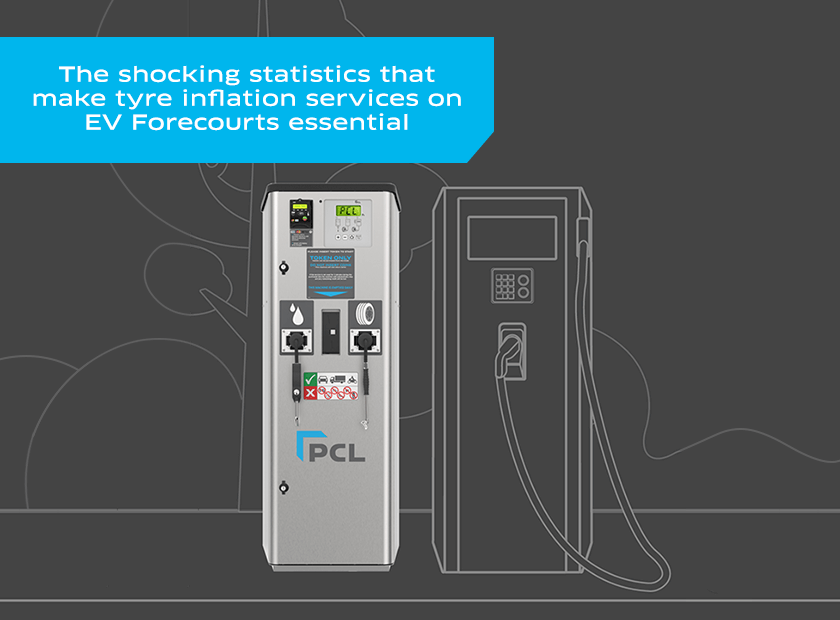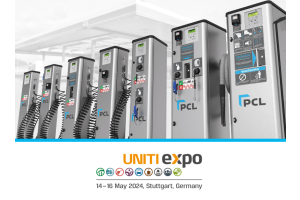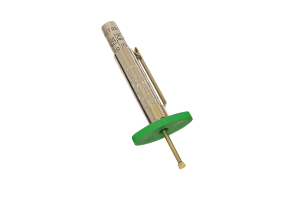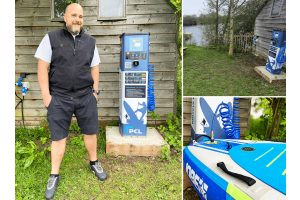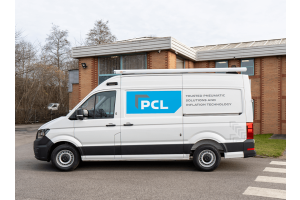Wheel and tyre issues cause 37% of electric car breakdowns
Every year, PCL works to raise awareness about the dangers of poorly maintained tyres, backing police initiatives and campaigns run by bodies such as TyreSafe.
It is vital that the impact of not looking after tyres becomes common knowledge and that tyre inflation services are cost-effective and convenient.
From tyre lifespan, to safety and fuel economy, having too much or not enough air in tyres can have wide-ranging implications, with the most tragic consequence being fatal accidents. The Department of Transport reports that 153 people are killed or seriously injured each year due to tyre-related incidents (TyreSafe, 2022).
Where accidents with Electric Vehicles (EVs) are concerned, according to insurance company AXA Switzerland they cause more damage than petrol or diesel vehicles in the event of a collision due to their increased weight and speed of acceleration.
In addition, you might think the majority of EV breakdowns are caused by out of charge batteries, but they actually only account for 11%. More than three times that amount (37%) are down to flat tyres or wheel issues (LV= Britannia Rescue, 2021).
When you consider how fast the EV market is growing, with over 920,000 fully electric cars on UK roads at the end of October 2023 and a further 560,000 plug-in hybrids (ZapMap, 2023), it is crucial that EV owners take care of their tyres.
How does tyre pressure affect EVs?
Six areas are directly impacted through incorrectly inflated tyres:
- Vehicle Control - Tighter control of tyre pressure loss can lead to marked improvement in electric vehicle efficiency (SAE International, 2020).
- Energy Consumption - Under-inflated tyres consume more energy.
- Tyre Wear - For every 10% a tyre is under-inflated, its wear increases by 10% (TyreSafe, 2022).
- Tyre Safety - Under-inflated tyres affect handling and grip, causing irregular or unpredictable vehicle behaviour (LV= Britannia Rescue, 2021).
- Driving Experience - 75% of EV drivers cite driving experience as a major reason for going electric, and keeping tyres correctly inflated is fundamental to driving experience (Shell Recharge Solutions EV Driver Survey, 2022).
- Carbon Footprint - Properly inflated tyres last longer, increasing tyre life, which means less tyres going to landfill.
Do EVs and hybrid cars need special tyres?
It isn’t a legal requirement to have special tyres, however EV engineered tyres are heavier and quieter with a particular type of sidewall that can withstand the extra weight and handle higher levels of pressure and resistance without effecting the vehicles performance. Not only does this provide EV drivers with benefits such as extended tread life, advanced handling and stability, but can also boost their battery range by up to 10% (Michelin, 2022).
Could original tyres on an EV do any harm?
TyreSafe has warned that fitting the wrong type of tyre could result in loss of range, extra noise, accelerated wear and the risk of failing whilst driving, which could result in a serious incident. There is more detail about this in the ‘About Tyres’ section of TyreSafe.org.
When choosing a new set of tyres for an EV, the following factors should be taken into consideration:
- The vehicle’s weight - EVs are heavier, which affects the air pressure required to maintain optimum tyre shape, sidewall stiffness and centre section.
- Minimum rolling resistance – This should be the minimum possible whilst maintaining grip to ensure maximum braking range.
- Tyres should be robust with appropriate tread pattern – This helps maintain lifespan, since a EV’s high speed of acceleration from standing puts increased pressure on the rubber compound of tyres.
Why should I offer air on an EV forecourt?
Because none of the above benefits will be effective unless the tyres are properly inflated.
As the number of EVs increases, so does the need for public EV services (Next Green Car, 2022). There are now around 51,516 electric vehicle charging points across the UK, across 30,360 charging locations. This represents a 45% increase in the total number of charging devices since October 2022 (ZapMap, 2023). This number is expected to reach 300,000 by 2030 (Gov.uk, 2022).
It has also been estimated that drivers spend an average of 34 minutes at EV forecourt services — leaving plenty of time to top up their tyres. Therefore, EV forecourts will benefit from installing the latest, most advanced tyre inflation equipment. This will make them more than just an EV charging destination, and provides them with an opportunity to generate additional revenue by offering a tyre inflation service. Free top-ups could also be used as an incentive to keep customers coming back.
Forecourts can differentiate further with the provision of Nitrogen. For example, through equipment such as PCL’s Nitrogen Tower, which contains advanced filtration to remove oxygen and other unwanted gases from compressed air, delivering a high purity nitrogen mix quickly and quietly.
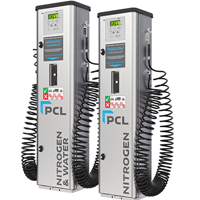 View PCL's range of Nitrogen Towers
View PCL's range of Nitrogen Towers
What are the Benefits of Nitrogen over air for EV tyre inflation?
- Reduces pressure loss - Nitrogen has a larger molecular structure than oxygen, so it migrates through the rubber tyre wall much more slowly, thereby reducing the speed of pressure loss.
- Prevents unwanted pressure changes - Nitrogen is a dry gas which reduces energy build up inside the tyre on long journeys. This prevents unwanted pressure increases and uneven tyre wear.
- Limits tyre and wheel rim wear – As a dry gas, Nitrogen doesn’t oxidise (causing rust) or react with materials it comes into contact with, such as the inner tyre wall and inner wheel rim.
- Increases Customer Retention - Offering Nitrogen top-ups for life once the customer has paid for a conversion will keep them coming back.
Why offer additional services on an EV forecourt?
In the time a driver spends at a forecourt, there is an opportunity to offer additional services such as vacuum, fragrance and screenwash to increase revenue. Installing a unit such as PCL’s Multi-function Digital Tower combines all of these in one user-friendly cabinet, with token and cashless payment options available – and it will achieve payback within the first year.
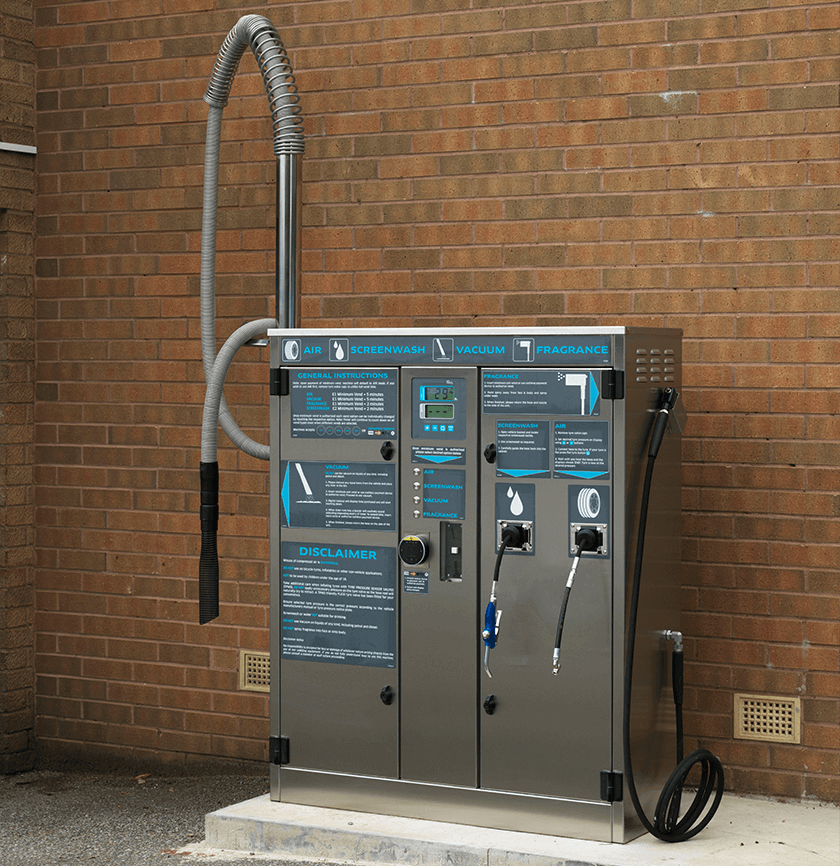
PCL's 4-in-1 Multi-function Digital Tower
Can accurate EV tyre inflation save money?
It’s important for service providers and customers to know that not looking after their tyres properly can hit their pockets in more ways than one.
Not least because, worryingly, as household bills continue to soar, drivers are neglecting vehicle maintenance without realising this could cost them dearly in the long run.
In a survey commissioned by road safety charity IAM RoadSmart, 11% of motorists had put off replacing a tyre with low tread; and 7% had delayed changing a punctured tyre (Oct 2022).
IAM RoadSmart revealed: “This means that of the almost 36 million people with a full driving licence in the UK, up to 4.2 million drivers are possibly deferring critical tyre safety maintenance, while up to 2.5 million motorists are potentially putting off fixing a puncture.”
Yet TyreSafe estimates that under-inflated tyres cost UK consumers £600 million per year.
Technical Sales Manager Owen McCaughey, in charge of UK Sales for PCL’s petrol forecourt market, said: “The cost-of-living crisis is hitting us all hard, and whilst it’s understandable that people are trying to save money, cutting costs on tyre maintenance is not the way to do it.”
He explained: “With a conventional car, around 3% more fuel is used if the tyre inflation level is 6psi below what it should be. Furthermore, by regularly checking tyre pressures and making sure they are at 100% of the manufacturer-recommended psi, the lifespan of the tyres is maximised, which also saves money. With an EV, savings could be even more substantial. So the rewards you can reap in the long-term will outweigh any short-term savings.”
However, cost is not the most important factor, safety is.
Owen stressed: “The air in your tyres carries the majority of a vehicle’s load, and the tyres are the only contact point between the vehicle and the road. This ‘contact patch’ is only the size of the palm of your hand, so for a vehicle to have the best possible stability, this area needs to be flat to the road which can only be achieved by having the correct tyre pressures.
“Under-inflated and defective tyres are the primary cause of most road traffic accidents. When tyres are not correctly inflated, braking performance is affected, which can lead to dangerous situations. However, over a third of tyres (35%) are being driven on roads at least 8psi below vehicle manufacturer recommendations.”
Owen warned: “All too often people think that having a slightly underinflated tyre won’t be an issue, but throw heavy rain or having to swerve around an obstacle into the mix and the results can be lethal.
“This applies to all vehicles, whether it’s petrol, diesel, or an EV. Checking tyre pressure and tread takes just 10 minutes, and it could prevent a fatal accident.
“For forecourts, PCL’s high performance forecourt range drives revenue with the full set up for Air, Water, Screenwash and Nitrogen provision, from mechanical units through to the latest in electronic inflation and dispensing. Plus our bespoke capabilities mean we can provide OEM services to meet specific design needs.
“For EV drivers, an extended forecourt offering means an increased availability of convenient places to top tyre inflation up safely and for optimum performance. This in turn should encourage regular maintenance and less accidents on the road.”

